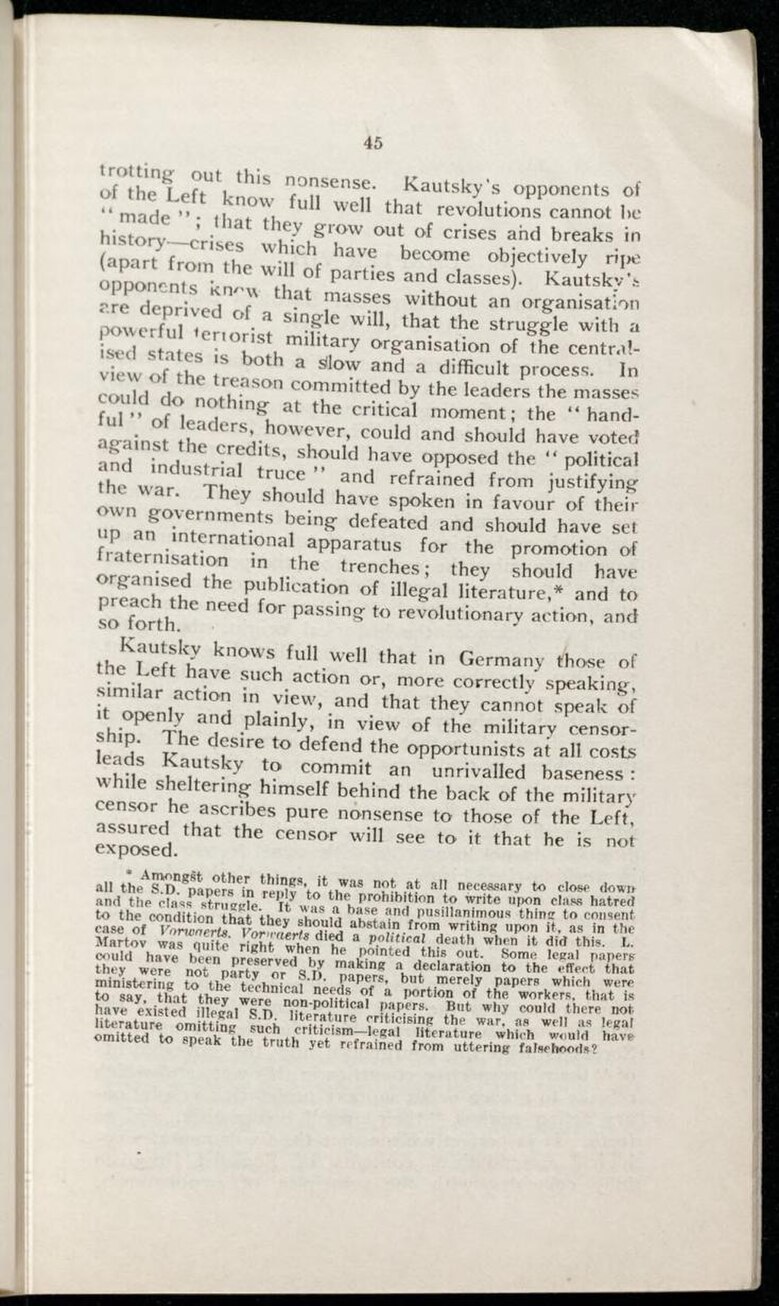45
trotting out this nonsense. Kautsky's opponents of of the Left know full well that revolutions cannot be "made"; that they grow out of crises and breaks in history—crises which have become objectively ripe (apart from the will of parties and classes). Kautsky's opponents know that masses without an organisation are deprived of a single will, that the struggle with a powerful terrorist military organisation of the centralised states is both a slow and a difficult process. In view of the treason committed by the leaders the masses could do nothing at the critical moment; the "handful" of leaders, however, could and should have voted against the credits, should have opposed the "political and industrial truce" and refrained from justifying the war. They should have spoken in favour of their own governments being defeated and should have set up an international apparatus for the promotion of fraternisation in the trenches; they should have organised the publication of illegal literature,[1] and to preach the need for passing to revolutionary action, and so forth.
Kautsky knows full well that in Germany those of the Left have such action or, more correctly speaking, similar action in view, and that they cannot speak of it openly and plainly, in view of the military censorship. The desire to defend the opportunists at all costs leads Kautsky to commit an unrivalled baseness: while sheltering himself behind the back of the military censor he ascribes pure nonsense to those of the Left, assured that the censor will see to it that he is not exposed.
- ↑ Amongst other things, it was not at all necessary to close down all the S.D. papers in reply to the prohibition to write upon class hatred and the class struggle. It was a base and pusillanimous thing to consent to the condition that they should abstain from writing upon it, as in the case of Vorwaerts. Vorwaerts died a political death when it did this. L. Martov was quite right when he pointed this out. Some legal papers could have been preserved by making a declaration to the effect that they were not party or S.D. papers, but merely papers which were ministering to the technical needs of a portion of the workers, that is to say, that they were non-political papers. But why could there not have existed illegal S.D. literature criticising the war, as well as legal literature omitting such criticism—legal literature which would have omitted to speak the truth yet refrained from uttering falsehoods?
